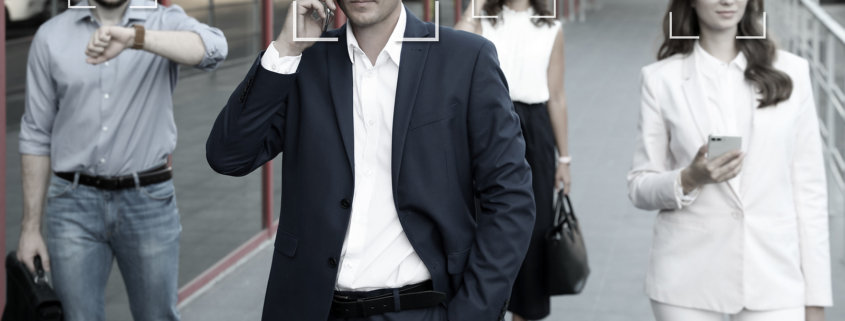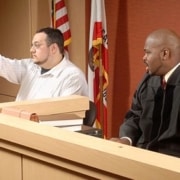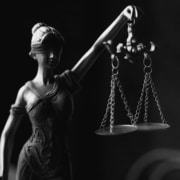Protecting Rights in An Era Of Facial Recognition Technology
Facial recognition technology has rapidly advanced in recent years, becoming an integral part of our daily lives, from securing our smartphones to enhancing security at airports. While this technology offers numerous benefits, it also raises critical questions about privacy, civil liberties, and the protection of individual rights. You should retain the services of an experienced criminal defense attorney for a strong defense strategy if you were arrested on the basis of facial recognition technology.
Challenges to Privacy and Rights from Facial Recognition Technology in Alabama
- Mass Surveillance: Widespread deployment of facial recognition systems can lead to pervasive surveillance, where individuals are constantly monitored in public spaces. This poses a fundamental challenge to the right to privacy, as it erodes the expectation of anonymity and privacy in public.
- Lack of Informed Consent: Individuals are often subjected to facial recognition without their knowledge or consent. In many cases, they may not be aware that their facial data is being captured, stored, and analyzed. This challenges the principle of informed consent, where individuals have the right to know and control how their data is used.
- Data Security and Breaches: Facial recognition involves the collection and storage of biometric data, which is highly sensitive. Inadequate data security measures can lead to data breaches, potentially exposing individuals to identity theft and other privacy violations.
- Government Use: Government agencies, including law enforcement, may employ facial recognition technology for various purposes, such as tracking individuals at public gatherings or identifying suspects. The unchecked use of this technology by government entities can erode civil liberties and privacy rights.
- Accuracy and Misidentification: Facial recognition algorithms may exhibit biases and inaccuracies, particularly in identifying individuals from diverse racial and gender backgrounds. Misidentifications can lead to wrongful arrests and unjust consequences, challenging the right to due process and freedom from arbitrary detention.
- Over-Policing and Racial Profiling: There is a risk that facial recognition technology may disproportionately target certain communities, leading to over-policing and racial profiling. This challenges the principle of equal protection and non-discrimination.
Addressing these challenges involves the implementation of robust regulations, transparency measures, accountability mechanisms, and ethical standards to ensure that facial recognition technology is used responsibly and in a manner that respects and protects individual privacy and rights.
How Can an Attorney Defend Your Rights?
An experienced criminal defense attorney will have deep domain knowledge of how facial recognition technology works, including its limitations, biases, and potential for errors, and how the state regulations deal with this type of evidence. Your lawyer can prove to be helpful in the following ways:
- Challenge Evidence: If facial recognition evidence is presented in court, attorneys can scrutinize its accuracy and reliability. They can question the methodology, the quality of the data used, and the training of the algorithms to identify potential weaknesses.
- Expert Witnesses: Your attorney will engage expert witnesses with knowledge of facial recognition technology. These experts can provide testimony on the technology’s limitations, potential biases, and the lack of established standards.
- Privacy Violations: Attorneys can challenge the legality of facial recognition data collection and argue that it violates your Fourth Amendment rights against unreasonable searches and seizures. They can investigate whether the data was obtained through consent or a valid warrant.
- Bias and Discrimination: If there is evidence of bias or discrimination in the use of facial recognition technology, your lawyer can raise these issues in court, highlighting how such biases can lead to wrongful arrests or charges.
- Legal Challenges: Attorneys can challenge the admissibility of facial recognition evidence in court, citing concerns about the technology’s accuracy and reliability. They can also argue that the use of facial recognition technology violates due process rights.
- Data Privacy Violations: If the collection, storage, or sharing of biometric data without consent is at issue, attorneys can argue that this constitutes a violation of privacy rights. They can explore whether the data was handled in compliance with applicable data privacy laws.
- Alternative Explanations: Attorneys should explore alternative explanations for the evidence presented against their clients. They can investigate alibis, witnesses, and other evidence that contradicts the facial recognition identification.
Challenging an Arrest Based on Facial Recognition Tech in Alabama
A vital aspect of your case is assessing whether the use of facial recognition technology violated your Fourth Amendment rights, which protects against unreasonable searches and seizures. Your attorney will closely examine the circumstances of your arrest and the technology’s involvement.
If facial recognition evidence was used to identify you as a suspect, your attorney can challenge its reliability and accuracy. It is important to remember that facial recognition technology has its limitations, and errors can occur. Your attorney may explore the possibility of bias playing a role in the facial recognition identification process, particularly if you belong to a group that is disproportionately affected by biases present in existing algorithms.
To build a strong defense, it is important to provide your attorney with comprehensive information about your arrest. This includes the date, location, and circumstances surrounding your arrest, as well as the role of facial recognition tech in the investigation.
Choose the Most Results-Driven Criminal Defense Firm
The experienced criminal defense attorneys at Alsobrook Law Group possess an in-depth understanding of Alabama’s legal framework and are well-equipped to provide you with a robust defense. Among other things, we will also assess whether your Fourth Amendment rights against unreasonable searches and seizures were violated due to the use of facial recognition technology. Your rights matter, and we will fight to protect them. To request your free, no-obligation consultation, call us at 334-360-9534 or complete this online form.















